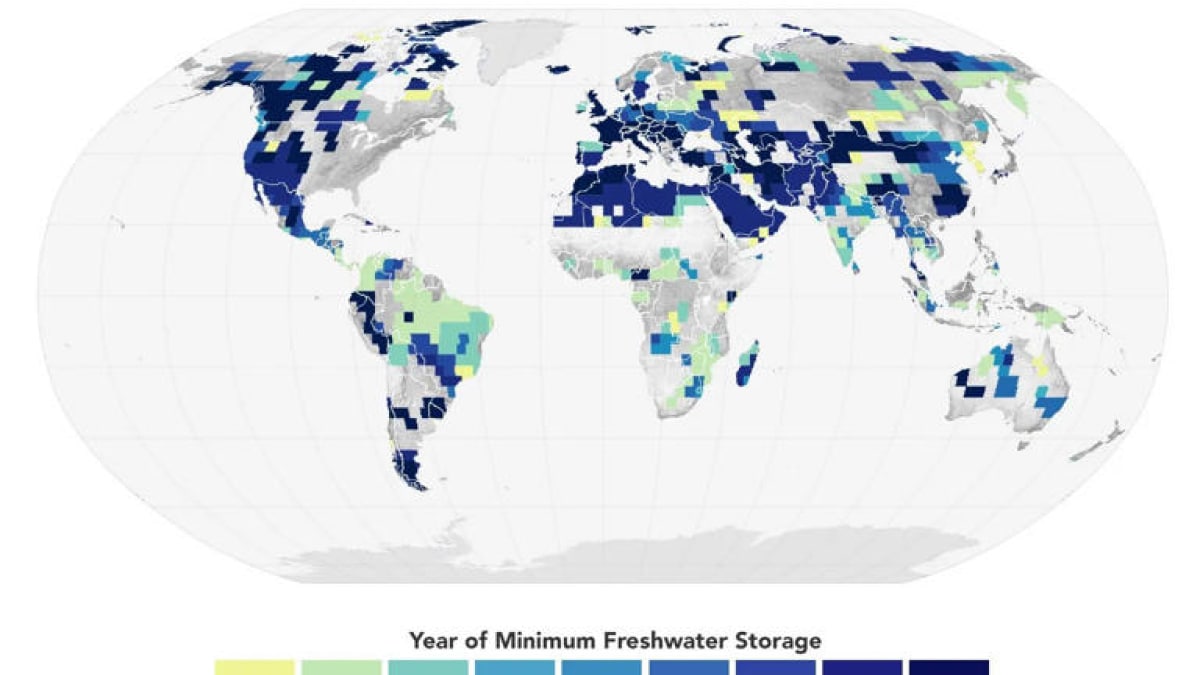An alarming reduction in Earth's freshwater supply has been identified through data from NASA's Gravity Recovery and Climate Experiment (GRACE) satellites. This trend, which began in May 2014, highlights a significant shift in global water availability, according to findings published in Surveys in Geophysics. The research, conducted by an international team of scientists, points to a persistent drier phase for the planet, with freshwater reserves remaining below average levels.
Key Findings from GRACE Satellite Data
The GRACE mission, operated jointly by NASA and German research centres, revealed that global freshwater reserves between 2015 and 2023 measured approximately 1,200 cubic kilometers—equivalent to two-and-a-half times the volume of Lake Erie. These measurements encompass surface water, underground aquifers, and other freshwater sources.
Matt Rodell, a hydrologist at NASA's Goddard Space Flight Center, stated in a press release that this reduction reflects a departure from pre-2014 averages.
Droughts and Global Warming Linked to Freshwater Loss
Research highlighted the occurrence of 13 major droughts globally since 2015, affecting regions such as Central Brazil, Australasia, and parts of Africa and Europe. These droughts have coincided with record high global temperatures, raising concerns about climate change's role in exacerbating water shortages.
Michael Bosilovich, a meteorologist at NASA Goddard, indicated that rising temperatures have intensified droughts by altering precipitation patterns, leading to runoff rather than groundwater replenishment.
Uncertainty Surrounding Long-Term Impact
While these findings underline the urgent need for sustainable water management, some researchers remain cautious about drawing definitive links between global warming and the observed trends. Susanna Werth, a hydrologist from Virginia Tech, pointed out the inherent uncertainties in climate models, emphasizing the need for continued monitoring.
Whether Earth's freshwater supplies will recover remains uncertain, but the observed decline could foreshadow prolonged dry conditions, scientists warn.


